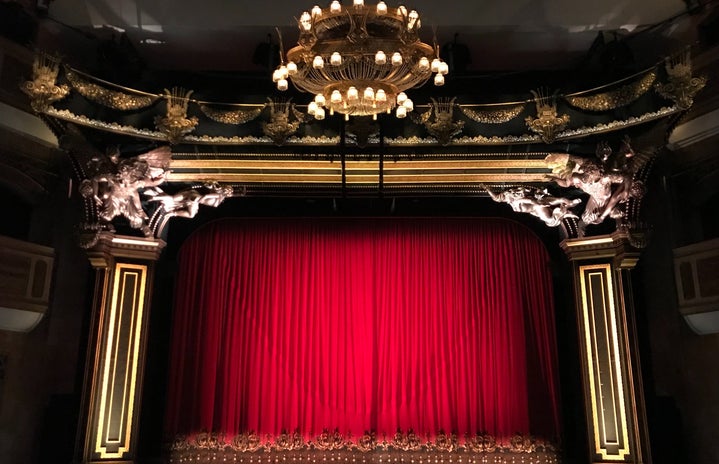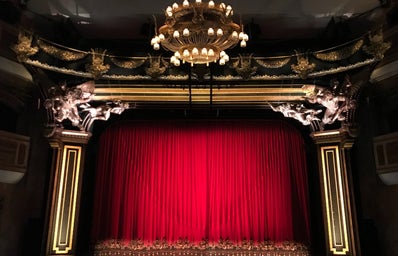When googling a brief synopsis of the show before watching the production, as a student of English Literature, I was intrigued to learn the plot is loosely based off The Tempest. My brief knowledge of this Shakespearian text and lack of having watched Forbidden Planet – a sci-fi film from 1956 in which the musical is based off – meant I had little idea of what to expect when walking into the Riley Smith theatre.
Any apprehension over the show’s contents was relieved when I entered the theatre and found my seat whilst being serenaded by Sam Ryder’s Space Man. The high-camp entertainment of Eurovision, as embodied by Ryder as the UK’s 2022 entry, perfectly translated to the show. Fun, wacky, chaotic: this production of Return to the Forbidden Planet provided me with multiple hours of sheer delight.
Kooky and slightly like a fever-dream, the show centres around a spaceship led by Captain Tempest which is drawn to the planet D’Illyria for unknown reasons. Confused by the disappearance of their Science Officer as well as the introduction of Doctor Prospero, Miranda, and Ariel who have been inhabiting the planet, the crew struggles with love-triangles, space monsters, and the effects of Doctor Prospero’s ‘X-factor’ drug. After revealing that the Science Officer is also Gloria (Prospero’s wife that sent him into space), the manipulation of the ship’s chef Cookie by said Gloria, and repairing the ship after it is attacked by monsters, the play is concluded by Doctor Prospero sacrificing himself in order for the spaceship to escape the planet, and Miranda and Captain Tempest getting together.
This performance began with the Newscaster, a role charmingly executed by Avery Grove, sat in the audience chatting to its’ members. Their continuous audience interactions perfectly provided comedic entertainment and alleviation when framing the narrative, helping immerse everyone in the play alongside multiple rounds of audience participation.
As soon as I saw the set on stage (designed by Ailsa Philbin), which impressively involved multiple levels of interior spaceship design, my focus was drawn to the sliding door that stood centre stage. Expecting a play of eccentricity, I turned to the person I watched the performance with and stated that ‘somebody better dramatically bust through those doors or else!’. This event happened multiple times much to my glee, with the first occurring as Doctor Prospero appeared on stage, strutting his stuff in a Frankensteinesque way and, of course, backed up by a fog machine.
This jam-packed jukebox musical had many highlights, including Vicky Katzarov’s vocals as the Science Officer/ Gloria, the ensemble’s rendition of Great Balls of Fire, and Louis Dixon’s (the actor of Captain Tempest) increasingly enthusiastic dance moves throughout the production. I’d also like to give a moment of appreciation to the band, production team and backstage crew who, quite literally in some cases, pieced together this show to reflect its full, frenzied glory. Who knew the LUU Musical Theatre Society could turn Shakespeare, rock and roll, space, dance breaks, and robots into such a wonder?
Edited by: Anna Duffell


